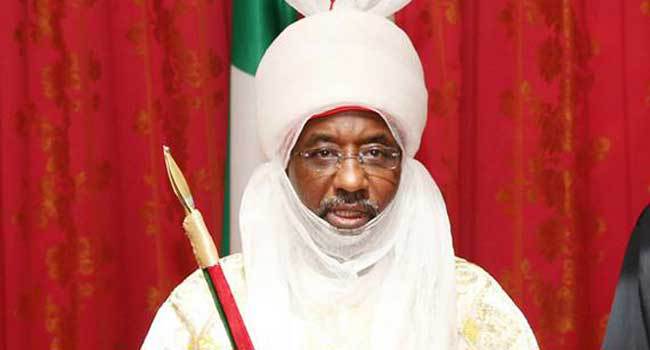
In 1947 when the British Raj left India after being there for well over three centuries, the newly created independent state of India opted to do away with the traditional institutions that had been part and parcel of the country. The government of Pandit Jawaharlal Nehru decided to abolish these institutions as the politicians were able to sway public opinion against these royals as collaborators with the erstwhile imperialists who had milked the nation dry.
When Nigeria obtained independence from Great Britain in 1960, the politicians didn’t copy their Indian counterparts as they left the royal stools albeit it’s weakening by western civilization.
The first deposition of a traditional ruler by a traditional ruler was that of Oba Adeniran Adeyemi, the father of the present Alaafin of Oyo, Oba Lamidi Adeyemi. He was in the bad books of the western region government and its Action Group controlled government. The Oba never backed the AG and was even alleged to have murdered Chief Bode Thomas in 1953 through spiritual means what in Nigerian English is called ‘jazz’ when they had a public altercation. The then Premier, Chief Obafemi Awolowo had enough of him and he was sent packing from his stool in 1955 into exile where he died five years later.
The second deposition was that done by the then Premier of the Northern Region, Alhaji Sir Ahmadu Bello who deposed his distant cousin and Grandfather of the former Emir Sanusi, Mohammed Sanusi 1 KBE in 1963 when they had a public spat. The urbane Emir was deposed to Azare in the present day Bauchi state where he joined his ancestors two decades later.
The immediate past Emir of Kano, Sanusi Lamido Sanusi had always been a man who has courted controversy even before he ascended the ancient throne as the Emir.
One of his first acts as the Boss of the Central Bank was to sack some powerful bank Managing Directors including Erastus Akingbola of the defunct Intercontinental Bank and Cecilia Ibru of the moribund Oceanic Bank. He alleged that they committed grave financial infractions and had to face the music squarely. Many banks including the former Bank PHB, Sterling Bank etc were lost to the Federal Government. His critics compared him to the hit man of the era of King Henry VIII, Sir Thomas Cromwell who was nicknamed ‘The hammer of the monks’ for his reform bid to rid England and the Crown of Catholicism.
Sanusi continued his controversy when he took on the then Goodluck Jonathan Presidency when he alleged that about $20 billion was missing from the account of the Nigerian National Petroleum Corporation (NNPC). The GEJ government didn’t take it lightly with him and he was subsequently suspended from his plum job. He took the matter to court and it dragged on until the sudden death of the long serving Emir Ado Bayero who passed on after fifty-one years on the throne in 2014. He vied for the throne and won but the Jonathan led government wouldn’t give up on its ‘persecution’ of him. The palace was sealed up and he was installed in the government house. Emissaries were sent to the government who then lifted the ban on his coming to the palace.
More controversy followed when the outspoken Emir had an intractable conflict with the Governor Abdullahi Ganduje led government. He criticized many of the policies of the latter and allegedly didn’t support his second term bid. He also incurred the wrath of the conservative northern establishment when he spoke against historical practices that he felt was holding it back from rapid development. He spoke against the almajiri system, polygamy among the poor even though he is a polygamist, neglect of the zone by the northern political establishment. He spoke in favour of women empowerment and his public lectures riled against the northern elite who saw him as a dangerous progressive that was opposed to a system that he largely benefitted from.
He had to be stopped immediately as he had the clout to whip up the sentiments of the masses against the elite. The latter were scared of the former rising up against them as Sanusi was portraying himself as the conscience of the highly impoverished region. He was selling himself to the masses as one of them even though he never went through their daily struggles.
The Ganduje led government leveled allegations of financial impropriety against him. He was found ‘guilty’ of embezzling billions of naira meant for the development of the emirate councils. His emirate was then balkanized into five with his powers being whittled down considerably.
The latest action of the governor which happened yesterday, March 9, 2020 was in deposing and exiling him to faraway Nassarawa state where he is to live the remainder of his highly turbulent life.
The former Emir has been known to be a great fighter beneath his diminutive mien. He has fought many battled in his life and this may be one more that he may have to fight as he was deeply in love with his throne as a custodian of the rich culture of his people.
He may use the instrumentality of the courts to reclaim his highly prized throne – the second most prestigious in the entire north after the Sultan of Sokoto. We recall that the former Olowo of Owo, Sir Olateru-Olagbegi came back to the throne in 1993 after over two decades of deposition after a protracted court battle.
Will Sanusi spring a come back as his supporters now portray him as a victim of government persecution? Will he go down the way of his grandfather who died in exile?
Over to you time!
Tony Ademiluyi wrote from Lagos and edits www.africanbard.com
END

This is the type of write up I love, professionalisms at its peak